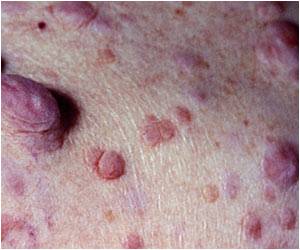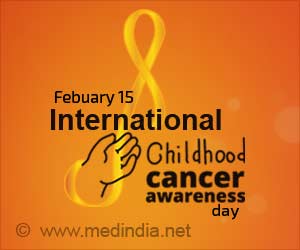Parental cancer can cause poor school grades, educational attainment, and earning power before the age of 30 in their wards, says study.
- School grades are affected and earning power is considerably lowered if children grew up in a family where at least one parent had been diagnosed with cancer
- As the chances of 5-year survival rates of the parents decreased, the impact on the child increased
- The study indicates giving these children the much-needed support to help combat their stress or negative emotions to make them lead a healthy life
Considering that one in three people will be diagnosed with cancer at some point in their lives and that one in every six survivors of the disease lives with children, the study might be an important one since it has analyzed the subject from the child’s point of view.
Study Design and Findings – To Find the Potential Impact on Overall Educational Attainment and Income by the age of 30 of Children Having a Parent with Cancer.
The researchers chose 1,155,214 Danish children born between January 1978 and December 1999 to conduct the study.
School performance
The team measured the final grade point average of 795,160 children born between 1986 and 1999, which was based on a combination of exam results and teacher assessment achieved by ninth grade (around the age of 15).Overall levels of educational attainment and disposable income by the age of 30
For this, the researchers compiled data for 360,054 children born between 1978 and 1984.
Parental cancer
Researchers obtained the cancer data from the Danish National Patient Registry – to be considered in the study, cancer had to be diagnosed before the child was 18, and for school performance, before the age of 15.Disease severity
The average 5-year survival in Denmark for a particular type of cancer was used to define disease category. If the 5-year survival was above 85% it was termed good; if the survival was between 50-85% it was considered intermediate, and if it was below 50% the disease severity was categorized as poor.At least one parent of 4-5% of the children population was diagnosed with cancer, with half of them having a five-year survival that was good. The most common types of cancers among the mums were breast, gynecological and skin cancers while the dads were mostly detected with cancers of the prostate, bladder, bowel, lung, and skin.
How the children fared
Final grade average- If children had a parent with cancer, their final grade average was lower (small but significant difference) than children whose parents had not had cancer, taking into account, potentially influential factors, such as parents' educational attainment.
- Children whose parents had a poor chance of surviving five years or who had died of their disease had an even lower final grade average.
- Children whose parents had a good chance of surviving five years or who were still alive by the child's 15th birthday had a slightly higher average.
- Children who had a parent with cancer, especially if it was the father who had been affected, had a higher risk of low educational attainment.
- The risk was 1.5 times higher if the parents had a poor chance of surviving 5 years and 1.6 times higher if the parent died.
- There were no evident associations if the 5-year survival outlook was good or if the parent was alive by the child's 18th birthday.
Children with a parent who had cancer had a moderately increased risk of lower earning power by the age of 30 with the highest risk among children whose parents had a poor chance of surviving 5 years or who died of their cancer.
Overall, children who had been under 5 when the diagnosis of cancer was made were particularly badly affected. This suggests that any impact of parental cancer in early childhood may extend across the life course.
Although this observational study cannot establish cause, the researchers nevertheless explain: "In a life course perspective, parental cancer in childhood could be considered as a potential early life stressor that may increase the health vulnerability to later life exposures, expanding the risk of later social disadvantage and poor adult health."
They conclude that their findings: "may indicate that some children who experience parental cancer would benefit from appropriate support and early educational rehabilitation in [their] teenage years."
Reference:
- Anne Cathrine Joergensen, Stine Kjaer Urhoj, Anne-Marie Nybo Andersen. Primary school achievement and socioeconomic attainment in individuals affected by parental cancer in childhood or adolescence: a Danish nationwide register-based study. Journal of Epidemiology and Community Health, 2018; jech-2018-210472 DOI: 10.1136/jech-2018-210472
Source-Medindia















